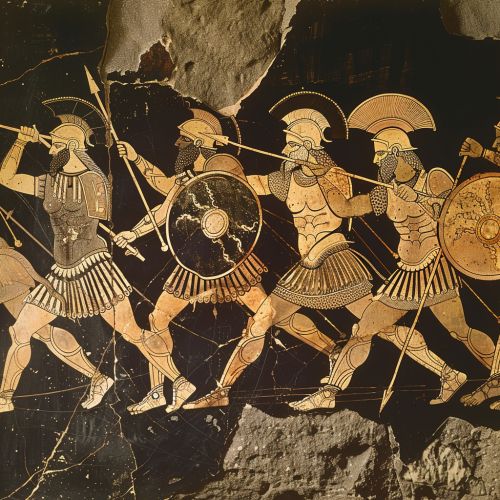Peloponnesian War
Origins of the War
The Peloponnesian War was a protracted conflict fought in ancient Greece from 431 to 404 BC. The war was fought between the Delian League, led by Athens, and the Peloponnesian League, led by Sparta. The war was named after the Peloponnese, the peninsula on which Sparta is located.


The origins of the war can be traced back to the aftermath of the Persian Wars, which ended in 479 BC. In the wake of these wars, Athens emerged as the dominant naval power in the Aegean Sea, while Sparta remained the preeminent land power in Greece. This shift in the balance of power led to increasing tension between the two city-states, culminating in the outbreak of the Peloponnesian War.
The Archidamian War
The first phase of the Peloponnesian War, known as the Archidamian War, lasted from 431 to 421 BC. This phase was named after the Spartan king Archidamus II, who led the Spartan forces during this period. The Archidamian War was characterized by annual Spartan invasions of Attica, the region surrounding Athens, while the Athenians launched naval raids on the Peloponnese.
The Peace of Nicias
The Archidamian War ended with the signing of the Peace of Nicias in 421 BC. This peace treaty was intended to last for fifty years, but it was broken after only six years. The Peace of Nicias was undermined by ongoing hostilities between individual members of the Delian and Peloponnesian Leagues, leading to the outbreak of the Sicilian Expedition.
The Sicilian Expedition
The Sicilian Expedition was a disastrous military campaign launched by Athens in 415 BC. The Athenians sought to conquer the city of Syracuse in Sicily, but the expedition ended in a catastrophic defeat for Athens. The failure of the Sicilian Expedition marked a turning point in the Peloponnesian War, as it significantly weakened Athens and emboldened Sparta.
The Decelean War
The final phase of the Peloponnesian War, known as the Decelean War or the Ionian War, lasted from 413 to 404 BC. During this phase, Sparta, supported by Persia, launched a successful offensive against Athens. The war ended with the surrender of Athens in 404 BC, marking the end of the Athenian Empire and the ascendancy of Sparta in the Greek world.
Impact of the War
The Peloponnesian War had a profound impact on ancient Greece. The war led to the downfall of the Athenian Empire and the rise of Sparta as the dominant power in Greece. However, the war also weakened the Greek city-states, paving the way for the conquest of Greece by Philip II of Macedon in the fourth century BC.


